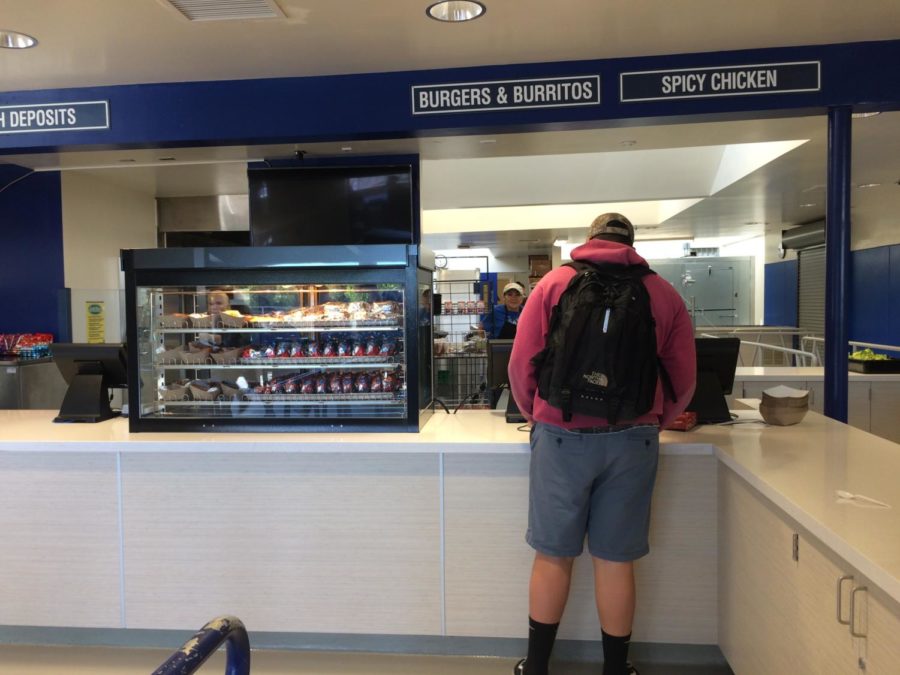Carlmont took a step towards the future in the last month, changing from cash to credit in the cafeteria.
Students are now required to have money attached to their school account if they want to buy food from the school cafeteria. Their parents must be the ones to load the money into their account unless the student has a source of income and can do it themselves.
To do this, one must sign in to the student’s infinite campus account. Under the Family category on the left, there will be a Payments tab. In the Recurring Payments tab, one can choose the frequency of payments, the beginning and end date, the amount of money to be put in the account, and the payment method at the bottom.
Forgetting lunch has become a new concern for students, for, without an online balance, students cannot buy a full meal. Students with cash can purchase snacks at the student store, but that the food sold there doesn’t make a complete meal.
“I think it’s inconvenient because some kids forget their lunch, and they only have cash, and their parents don’t have that credit system,” said Carson Warfield, a freshman.
In the real world, there are becoming fewer options for people paying in cash because more businesses nowadays are making the switch.
There are benefits to using electronic money instead of physical bills. For instance, lunch ladies aren’t as involved in the lunch process, and the overall process is more efficient because the school no longer has to receive, sort, and send the money to the bank.
It has been made known that staffing is a problem for Carlmont; there are not enough people to handle the money therefore leaving the school to use electronics in its place.
“I like it because I’ve never used [cash] before. I always had credit on my card, which is easier,” said Sofia Hawkes, a sophomore.
The change has left students with mixed reviews. People who frequently eat at the Student Union often liked the change because it is more convenient for them to have an online balance rather than to always carry money. On the other hand, for students who rarely buy lunch, it is an inconvenience, as they now have the responsibility of making sure that money is in their account.
“I like it, but I [also] don’t like it because sometimes I forget if I don’t have enough money on my account, and I’ll only have cash, but then they won’t let me pay with it, so I won’t have a lunch,” said Senna Davies, a sophomore.
It is hard to say if the benefits of this electronic system outweigh the negative impacts, as this switch forces students to get on board with the new age of electronics.

